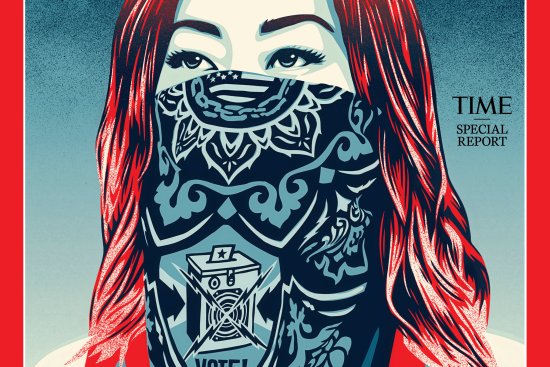
I don’t often use this space to direct your attention to other publications, but I do recommend you check out an article Science published online on Sept. 24. Titled Singing in a Silent Spring, it adds a new entrant to the list of uplifting changes in the natural world that occurred when we humans went into temporary retreat at the start of the pandemic. It appears that in the relative hush of the San Francisco Bay Area this past April and May, the song of the white-crowned sparrow became quieter and sweeter than it had been before.
This has been a year of so much pain, hardship, chaos and loss. And yet as nations around the world begin to rebuild from the pandemic, it is clear that we also have a once-in-a-generation opportunity to change our tune. Our issue this week, in partnership with the World Economic Forum, explores that opportunity, which the forum’s chairman, Klaus Schwab, has called “The Great Reset.” How can we seize this moment of disruption to push for a world that is healthier, more resilient, sustainable and just? What do all of us–individuals, businesses and governments–need to do to ensure that we don’t simply revert to what was before?
Schwab, while acknowledging that it’s “hard to be optimistic about the prospect of a brighter global future,” offers some glimmers of hope in the form of companies that are redefining success to be about more than profits. Economist Mariana Mazzucato provides a road map for transforming our financial structures. Danish architect Bjarke Ingels describes his extraordinarily ambitious Masterplanet–a blueprint for a greener earth. Our correspondents around the globe speak with business leaders and policymakers about their more immediate plans–from Tokyo’s Governor Yuriko Koike, currently preparing for the rescheduled Olympic Games in 2021, to Citigroup’s newly appointed CEO, Jane Fraser, the first woman to run a major Wall Street bank. We’ve also included excerpts of conversations from our special TIME100 Talks hosted in October by Harry and Meghan, the Duke and Duchess of Sussex, on how to build a better digital world. You can watch the full program at time.com/time100talks
Few events will shape the world to come more than the result of the upcoming U.S. presidential election. As Americans decide if it’s time to reach for a reset button of our own, this issue includes a special report on the closing days of the 2020 campaign. “On Nov. 3 (or, hopefully, soon after), we will finally get an answer to the question of what these past four discombobulating years have meant,” writes TIME’s national political correspondent Molly Ball. “It is a decision not about what policy proposals to pursue but about what reality we collectively decide to inhabit.”
To mark this historic moment, arguably as consequential a decision as any of us has ever made at the ballot box, we have for the first time in our nearly 100-year history replaced our logo on the cover of our U.S. edition with the imperative for all of us to exercise the right to vote. To help, we’ve provided readers with a guide on how to vote safely during this extraordinary year. The artwork on the cover is by Shepard Fairey, whose work includes two prior TIME covers. “Even though the subject in the portrait knows there are additional challenges to democracy during a pandemic,” Fairey says of the image, the person is determined to use their “voice and power by voting.”
We stand at a rare moment, one that will separate history into before and after for generations. It is the kind of moment in which readers across the country and around the world have always turned to TIME. We thank you for doing so now.
